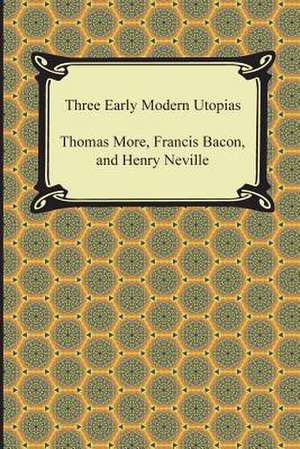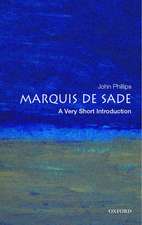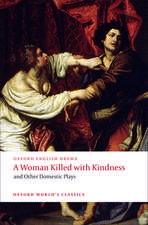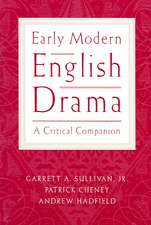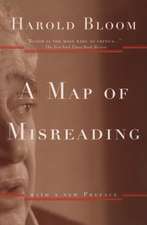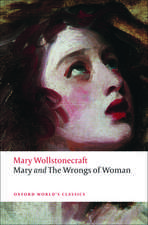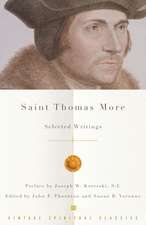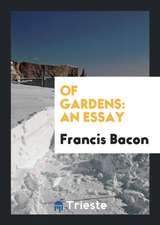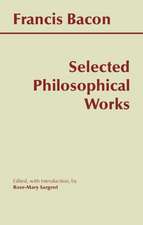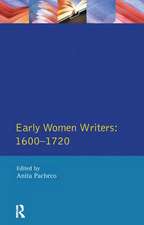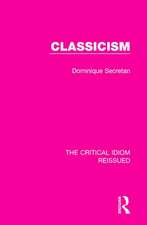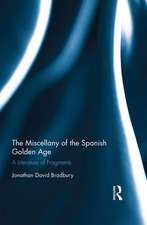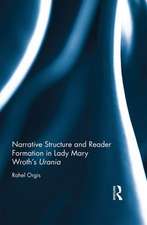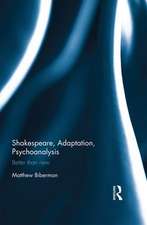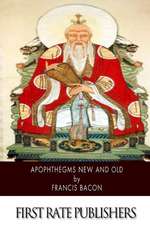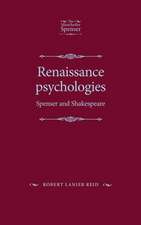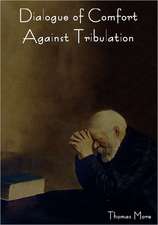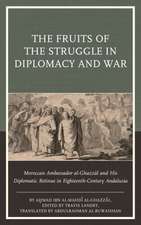Three Early Modern Utopias
Autor Thomas More, Francis Bacon, Henry Nevilleen Limba Engleză Paperback – 31 dec 2014
| Toate formatele și edițiile | Preț | Express |
|---|---|---|
| Paperback (2) | 48.42 lei 10-17 zile | +18.14 lei 6-12 zile |
| Oxford University Press – 13 noi 2008 | 48.42 lei 10-17 zile | +18.14 lei 6-12 zile |
| Digireads.com – 31 dec 2014 | 67.07 lei 6-8 săpt. |
Preț: 67.07 lei
Nou
Puncte Express: 101
Preț estimativ în valută:
12.83€ • 13.72$ • 10.70£
12.83€ • 13.72$ • 10.70£
Carte tipărită la comandă
Livrare economică 18 aprilie-02 mai
Preluare comenzi: 021 569.72.76
Specificații
ISBN-13: 9781420950717
ISBN-10: 1420950711
Pagini: 122
Dimensiuni: 152 x 229 x 7 mm
Greutate: 0.19 kg
Editura: Digireads.com
ISBN-10: 1420950711
Pagini: 122
Dimensiuni: 152 x 229 x 7 mm
Greutate: 0.19 kg
Editura: Digireads.com
Notă biografică
Sir Thomas More (1478 - 1535), venerated by Roman Catholics as Saint Thomas More, was an English lawyer, social philosopher, author, statesman and noted Renaissance humanist. He was also a counselor to Henry VIII and Lord High Chancellor of England from October 1529 to 16 May 1532. Now best remembered for the lyrics of "The Minstrel Boy" and "The Last Rose of Summer". He was responsible, with John Murray, for burning Lord Byron's memoirs after his death. In his lifetime he was often referred to as Anacreon Moore. As a poet, translator, balladeer and singer Moore found fame. His work soon became immensely popular. But Moore was far more than a balladeer. He had major success as a society figure in London, meeting the Prince of Wales on several occasions and enjoying in particular the patronage of the Irish aristocrat Lord Moira.
Descriere
Descriere de la o altă ediție sau format:
Thomas More: Utopia/ Francis Bacon: New Atlantis/Henry Neville: The Isle of Pines With the publication of Utopia (1516), Thomas More introduced into the English language not only a new word, but a new way of thinking about the gulf between what ought to be and what is. His Utopia is at once a scathing analysis of the shortcomings of his own society, a realistic suggestion for an alternative mode of social organization, and a satire on unrealistic idealism. Enormously influential, it remains a challenging as well as a playful text. This edition reprints Ralph Robinson's 1556 translation from More's original Latin together with letters and illustrations that accompanied early editions of Utopia. Utopia was only one of many early modern treatments of other worlds. This edition also includes two other, hitherto less accessible, utopian narratives. New Atlantis (1627) offers a fictional illustration of Francis Bacon's visionary ideal of the role that science should play in the modern society. Henry Neville's The Isle of Pines (1668), a precursor of Defoe's Robinson Crusoe, engages with some of the sexual, racial, and colonialist anxieties of the end of the early modern period. Together these texts illustrate the diversity of the early modern utopian imagination, as well as the different purposes to which it could be put. ABOUT THE SERIES: For over 100 years Oxford World's Classics has made available the widest range of literature from around the globe. Each affordable volume reflects Oxford's commitment to scholarship, providing the most accurate text plus a wealth of other valuable features, including expert introductions by leading authorities, helpful notes to clarify the text, up-to-date bibliographies for further study, and much more.
Thomas More: Utopia/ Francis Bacon: New Atlantis/Henry Neville: The Isle of Pines With the publication of Utopia (1516), Thomas More introduced into the English language not only a new word, but a new way of thinking about the gulf between what ought to be and what is. His Utopia is at once a scathing analysis of the shortcomings of his own society, a realistic suggestion for an alternative mode of social organization, and a satire on unrealistic idealism. Enormously influential, it remains a challenging as well as a playful text. This edition reprints Ralph Robinson's 1556 translation from More's original Latin together with letters and illustrations that accompanied early editions of Utopia. Utopia was only one of many early modern treatments of other worlds. This edition also includes two other, hitherto less accessible, utopian narratives. New Atlantis (1627) offers a fictional illustration of Francis Bacon's visionary ideal of the role that science should play in the modern society. Henry Neville's The Isle of Pines (1668), a precursor of Defoe's Robinson Crusoe, engages with some of the sexual, racial, and colonialist anxieties of the end of the early modern period. Together these texts illustrate the diversity of the early modern utopian imagination, as well as the different purposes to which it could be put. ABOUT THE SERIES: For over 100 years Oxford World's Classics has made available the widest range of literature from around the globe. Each affordable volume reflects Oxford's commitment to scholarship, providing the most accurate text plus a wealth of other valuable features, including expert introductions by leading authorities, helpful notes to clarify the text, up-to-date bibliographies for further study, and much more.
